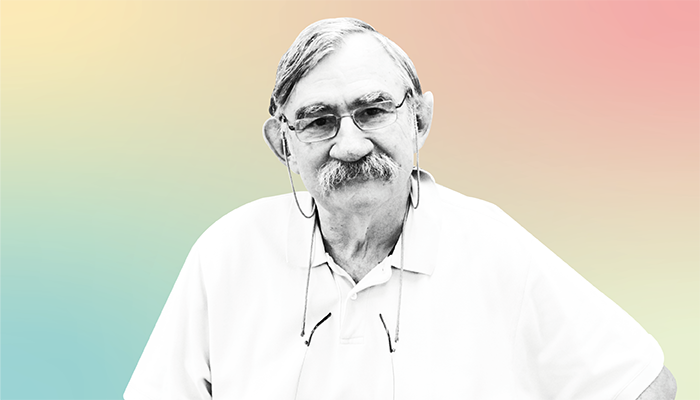
The news of Terry Berger’s passing hit me hard. I hugely admired his work and had much affection for the man. For those of you who do not know, Terry was considered “the father of modern supercritical fluid chromatography” (SFC). I have practiced SFC for over 20 years, so you can perhaps understand my emotion.
This description was well deserved; he really made SFC enter a new era – transitioning from the less satisfying neat-CO2 capillary SFC to the modified-CO2 packed-column SFC. This feat was achieved through his significant contribution to instrument development, fundamental studies that increased general understanding of supercritical fluid behavior, and many application papers, where he aptly demonstrated the interest of the technique for a broad range of application domains.
I started SFC when I was only a baby chromatographer during my PhD years, and I had read all his papers early on in my career – several times. I had of course learnt a lot of science from reading these papers. But apart from the content, they also taught me what a good, convincing paper should look like; I learnt to be straightforward, to not embarrass myself with long sentences to get to my point, and to recognize that a good figure is always better than a long page of text.
But this is not the only thing I learnt from Terry. To understand what else he taught me, although quite involuntarily, I would like to share two personal stories.
When I was still a PhD student, I was fortunate to attend a conference on supercritical fluids in Pittsburgh, USA. Terry gave a lecture on the last day of the conference. I had seen him from a distance, but I would never have dared to approach him – I was rather young and shy. Mind you, he was pretty impressive: tall, burly, with his long gray hair held in a ponytail. There was something of a rock-star about him. When he came on stage for his lecture, the title appearing on the first slide was not the one indicated in the program. He started saying that he had completely changed his mind about his talk as a result of the previous days’ conversations, which had generated new ideas that he wanted to share. I was rather flabbergasted at his nerve and panache.
However distant, this first encounter left a lasting impression on me, because I am also that sort of person, who cannot stick to an old idea too long. I hate writing an abstract six months before an intended talk, because I have no idea what will be on my mind six months later. (By the way, don’t ever read my abstracts, they are pretty boring.) I am also the sort of person who will always change their slides at the last minute, not because I was not ready but because new ideas keep popping into my mind. When I heard that lecture, I understood that it was OK to not stay on track with the intended program, as long as you have something interesting to share. Indeed, I have puzzled some of my audience several times this way!
Six years after first seeing him, I had the chance of meeting Terry again at the HPLC conference in Boston, USA. As I had grown into an assistant professor, I felt confident enough to approach him. When introductions were made, I remember that the first thing I said was: “You know, you are a sort of SFC-God to me.” Terry laughed and said: “That scares the hell out of me!” This brilliant man was also modest. Perhaps he was also suffering from “impostor syndrome,” which I know quite well.
Looking back on this moment, I believe I now know what he meant. Continuing my journey with SFC and improving my understanding of the technique, I have sometimes allowed myself to disagree with some of Terry’s views. (Terry, wherever you are, I hope you can forgive this!) Science is moving. It is not meant to be gospel truth. What is true today will be wrong tomorrow. I have no problem admitting that I was wrong about the things I have previously believed to be true, as long as I receive a sound proof of my error.
I hope I can transfer some of this philosophy to my students, as Terry – whether or not he was conscious of it – transferred much of his philosophy to me.




